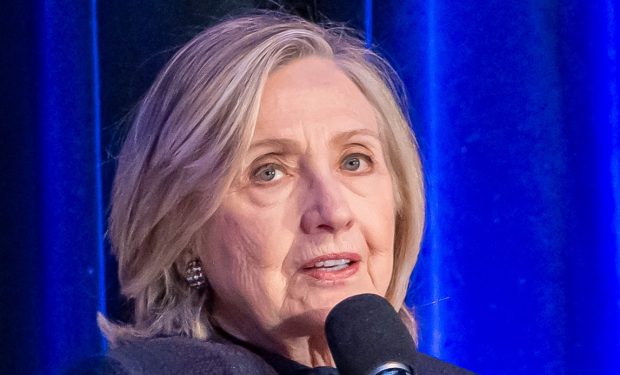Former presidential candidate, Secretary of State and U.S. Senator Hillary Clinton says that when she, as a Senator, had a chance to interview George W. Bush Supreme Court nominees John Roberts and Samuel Alito, she believed both were poor choices for the job.
Acknowledging that her reluctance to accept either jurist derived at least in part because they were put in the SCOTUS “pipeline” by the ultra-conservative Federalist Society and powerful operatives Leonard Leo — the man who, according to ProPublica, “built a machine that remade the American legal system” — Clinton says she nevertheless rejected both candidates for different reasons.
"Alito struck me almost immediately…as a radical, as a fanatic, about his views of culture and the role of religion in our society and his religion…And I found him scary."@HillaryClinton explains how she views the current Supreme Court. Watch here: https://t.co/v3VJj3YOYh pic.twitter.com/KQu1ThNdFZ
— Democracy Docket (@DemocracyDocket) June 15, 2024
On Alito, Clinton says he “struck me almost immediately upon sitting down to talk with him as a radical, as a fanatic about his views of culture and the role of religion in our society.”
Clinton recalls “I found him scary and I said so on the floor of the Senate when I voted against him.”
[NOTE: Clinton and Alito could converse at a high level about legal issues: they both received their law degrees from the prestigious Yale Law School, she in 1973 and Alito in 1975.]
Clinton, who also voted against Roberts, found him not scary like Alito but pre-programmed in a way that she believed would not serve the court well.
Saying she found Roberts to be “a conservative, corporate-oriented lawyer,” Clinton said she voted against him “not only because he was a candidate of the far-right… but that his life experience was just too narrow to be in that position.”
Roberts’s life experience has been rich if not, as Clinton accuses, broad. Raised Catholic like Alito, Roberts excelled academically and graduated from Harvard College in three years before attending Harvard Law School. He clerked at the Supreme Court and became Deputy Solicitor General of the United States, a position from which he argued nearly 40 cases before the Supreme Court he would later lead.
